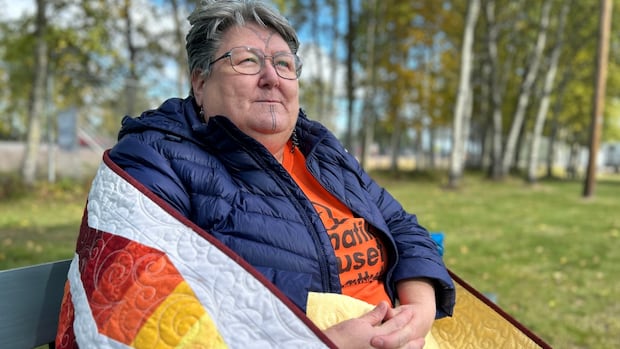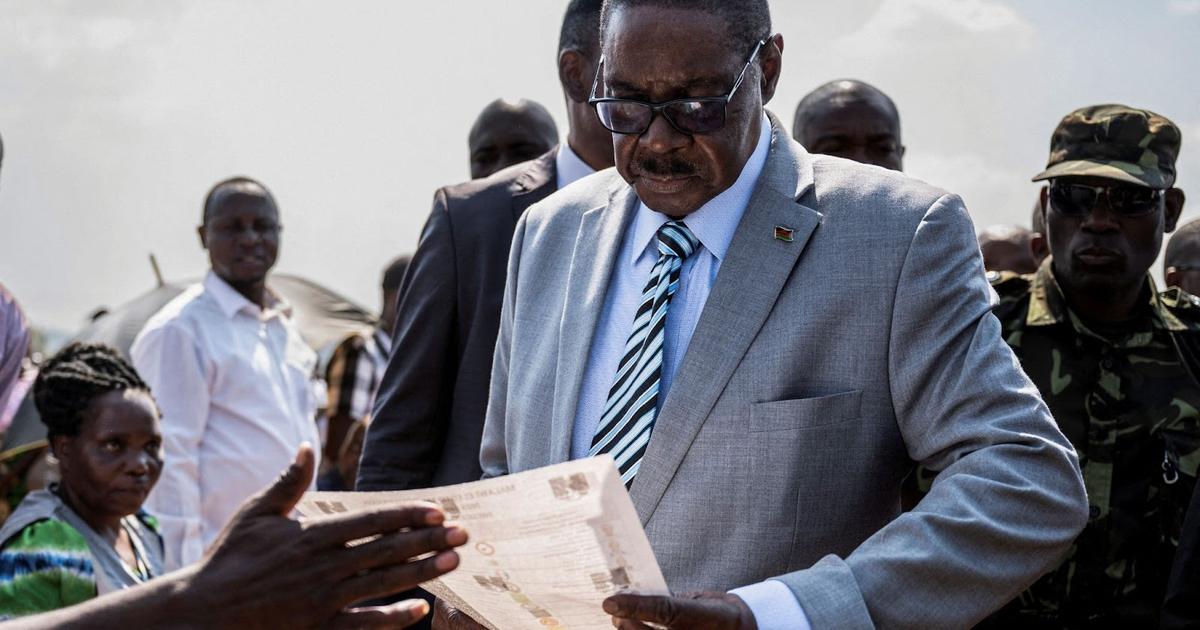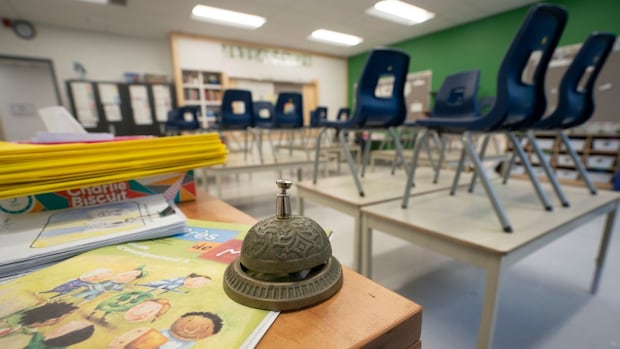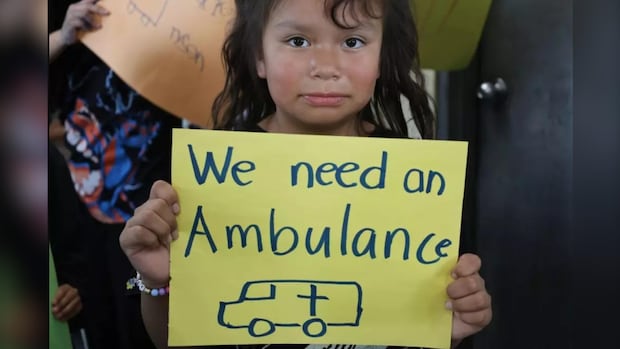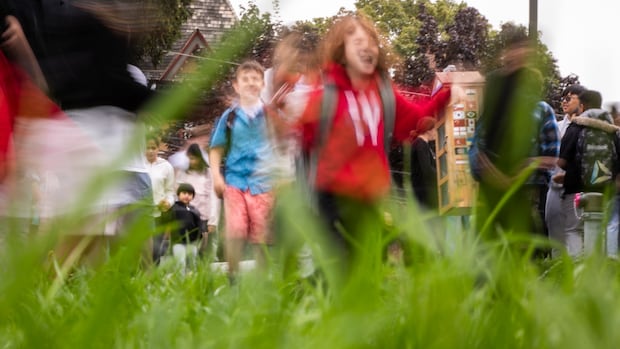Sharon Edmunds attended a residential school in North West River from 1975 to 1979. She attended events to mark the National Day for Truth and Reconciliation on Tuesday, and says it's important that the voices of survivors are heard from. (Andrea McGuire/CBC)
Sitting down after taking in events to mark the National Day for Truth and Reconciliation, Sharon Edmunds says she's always valued people asking her questions.
"That's how they become aware, and that's how they start to think about what it is they can do as individuals in terms of addressing the wrongs that happened to us," Edmunds told CBC News Tuesday.
"That is one of my responsibilities, to ensure that people listen, people are held accountable. People sit with the moment, and then move forward with change."
Edmunds lived in a dormitory at a residential school in North West River from 1975 to 1979. A third generation attendee, she said both of her parents, many aunts and uncles and her sister also attended residential schools.
She said she saw her family, and many others in her community, struggle in the years that followed.
"It was challenging to see, and to know their experience, which I only learned of later on in life," she said.
Residents of North West River marched to mark the National Day for Truth and Reconciliation Tuesday. (Andrea McGuire/CBC)
"I knew there was a lot happening in our lives, but I could never understand it. But now I do, and now I know where they were coming from."
As Canada marks its fifth National Day for Truth and Reconciliation, Edmunds says she continues to see that struggle in her community. Side effects can show themselves in different forms, she said, and can fester as addiction or homelessness for some.
She called events like Tuesday's significant, as it can help connect people and serve as a valuable teaching tool.
"These individuals get judged a lot, but nobody knows their story, and nobody knows their experience... I find it difficult that that happens so often," Edmunds said. "An event like this opens up a place of safety, cultural safety and awareness and education for all of us."
"People need to know our story, they need to know the experience of the Indigenous population with the residential school experience," she added. "They need to be held accountable, so that something like this doesn't happen again."
Samantha Newman, an organizer of the day's events in Happy Valley-Goose Bay, told CBC News she was proud to help be part of the experience to bring people together.
"It's quite healing for the community to come together this way ... and be a community in this way," she said.
Download our free CBC News app to sign up for push alerts for CBC Newfoundland and Labrador. Sign up for our daily headlines newsletter here. Click here to visit our landing page.
[SRC] https://www.cbc.ca/news/canada/newfoundland-labrador/edmunds-truth-and-reconciliation-1.7647522
 Visit the website
Visit the website
